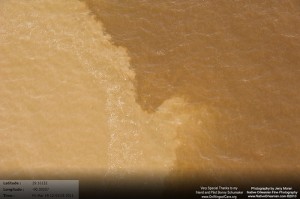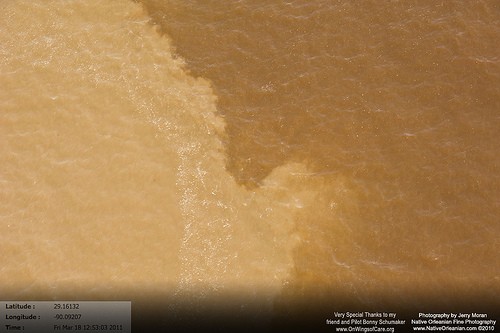 HOUSTON (Dow Jones)–The U.S. Coast Guard said an oily substance washed ashore over the weekend in parts of Louisiana that were among the hardest hit by BP PLC’s (BP, BP.LN) Deepwater Horizon oil spill last year.
HOUSTON (Dow Jones)–The U.S. Coast Guard said an oily substance washed ashore over the weekend in parts of Louisiana that were among the hardest hit by BP PLC’s (BP, BP.LN) Deepwater Horizon oil spill last year.
The Coast Guard said it has mobilized oil-spill-response equipment and has hired a contractor to lay containment booms in hopes of stopping the substance from penetrating inland waters and ecologically sensitive shorelines.
The agency is still trying to figure out what the substance is and where it came from. The Coast Guard said it does not suspect that it is residual oil from BP’s 4.9-million-barrel spill.
So far, the substance has washed ashore on Grand Isle, Fourchon Beach and Elmer’s Island, which serves as a state wildlife sanctuary. A rainbow-sheen-like slick that is associated with oil spills has also been reported on the surface of Timbalier Bay, the Coast Guard said.
Some 10,000 feet of boom is already on Grand Isle and an additional 19,000 feet of both hard and absorbent floating barrier has been ordered for the operation, Capt. Jonathan Burton, who is coordinating the response, said in a news release.
The Coast Guard has hired environmental-response company ES&H to begin cleaning up the oily substance and has authorized the disaster-response contractor to buy whatever additional boom and equipment is needed to contain and clean up the substance.
In a separate investigation, the Coast Guard has determined that what was reported Saturday as potentially a miles-long oil slick is actually a plume of silt emanating from the Mississippi River.
Samples from the plume taken from a Coast Guard cutter have found only trace amounts of oil and grease in the murky cloud.
“At this point, the dark substance is believed to be caused by a tremendous amount of sediment being carried down the Mississippi River due to high water, possibly further agitated by dredging operations,” the Coast Guard said in a news release.
Some sightings relayed to the Coast Guard had the plume stretching from about six miles south of the Louisiana shoreline to 100 miles offshore.
-By Ryan Dezember, Dow Jones Newswires
Photo: The USCG determined Sunday that the dark substance spotted Saturday in the Gulf of Mexico was in fact a plume of silt emanating from the Mississippi River. Courtesy oilspillaction.com.

 Join The Club
Join The Club












